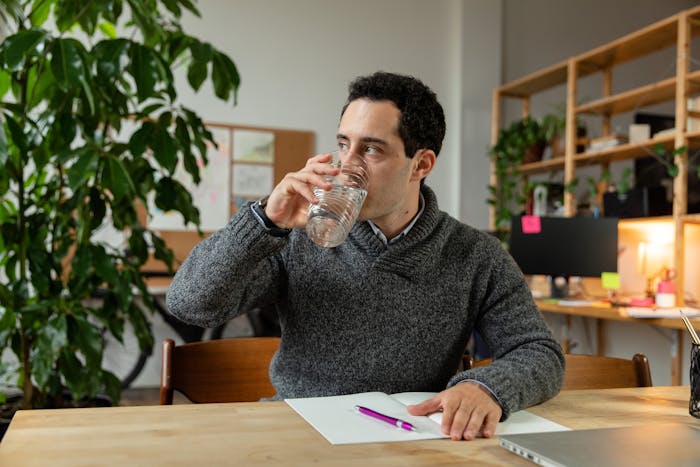If you are currently suffering from addiction to alcohol or know somebody who is, you certainly aren’t alone. It is estimated that as many as 586,780 adults over the age of 18 are dealing with alcohol addiction in the UK.
If you recognise that this might be the case, the best thing you can do to kickstart your journey towards recovery is to seek help from a trained professional. They will be best placed to help determine the degree and nature of the problem as well as signposting you towards help and support, often in the form of rehab.
Such professionals can be found by reaching out to the Rehab 4 Addiction team who can help assess your current needs and provide recommendations for alcohol rehab options in Wellingborough.
Read on to find out what you can expect to discuss if you do decide to reach out.
In our society, alcohol consumption is a normal, acceptable part of life and it plays a role in celebrations to commiserations. As such, it can be very difficult to appreciate when normal drinking has turned into problematic drinking and the line between them can be quite thin and blurred.
If you do decide to reach out for help, a professional will first assess whether you have indeed crossed the line into alcohol addiction by asking you some questions about your drinking. You can expect to give consideration to the following:
These are difficult questions and can be challenging to confront but if you are able to answer then honestly, a professional should be able to determine whether your drinking habits have turned into an addiction.
Going through these questions now, if the amount you drink is increasing, friends or family are concerned about your drinking or mood and you are experiencing withdrawal symptoms between drinks, these are signs an addiction is developing and you should get help as soon as possible, potentially in the form of rehab.
To help you start your journey towards recovery, Rehab 4 Addiction can help you locate an alcohol rehab facility in Wellingborough that is right for you.
Different people need different types and forms of support so by calling, Rehab 4 Addiction will undertake an initial assessment of your needs, the severity of addiction, goals for recovery, budget, medical, psychological and social history which will inform which treatment facilities are best for you.
For those with more severe addictions, perhaps compounded by other issues with mental health or are living in situations conducive to feeding your addiction further, residential and inpatient facilities might be the best option for you.
Here, you can fully immerse yourself in the recovery process in a safe, controlled environment free from elements of your usual life that could derail your progress.
If your addiction is milder and you are already in a supportive, alcohol-free environment, an outpatient or day facility may be more appropriate.
There are also a number of facilities in Wellingborough that can cater for a range of specialist needs including rehab for youth or older age adults, women or men or even certain faiths.
Regardless of which type of facility you choose, all should provide you with the means to not only recover but also take a holistic approach towards improving your overall wellbeing, physical and mental health.
Following an initial assessment, many alcohol rehab programmes start off by offering support during the withdrawal period, especially if you addiction is severe.
After you stop drinking, the body, having become used to having a certain amount of alcohol in it, can react by causing unpleasant withdrawal effects that can include nausea, vomiting, agitation, sweating, shaking and in the most extreme cases, seizures and altered consciousness.
For this purpose, trained professionals are on hand to support you through the withdrawal process and if need be, administer medicines that should help with the worst symptoms. After this period, which involves you overcoming the physical side of alcohol addiction, the bulk of the work starts by addressing the psychological component of addiction.
Across facilities, the mainstay of treatment are evidence-based, psychological talking therapies such as cognitive behavioural therapy (CBT) and motivational techniques.
Facilitated by an experienced professional, such treatments have been proven to change your mindset and provide you with coping strategies that mean you don’t have to reach for the bottle when you encounter difficult or stressful situations.
In addition to this, to ensure a holistic approach, you might also have access to alternative therapies like art, music or exercise therapy, all of which help develop interpersonal and social skills as well as improving your overall wellbeing.
As mentioned previously, addictions and the type of help one needs varies widely between individuals. The same is true when it comes to considering length of treatment as different people will require different length of stays.
In general, you can expect a programme at a residential facility to last between 14 and 28 days but again, this may be longer especially in cases where the addiction is particularly severe or if there are any co-existing diagnoses, particularly mental health problems.
It is also important to remember that addiction is defined as a chronic and long term condition. This means that there are no quick fixes and it might be that you require multiple courses of treatment in rehab in Wellingborough.
In general, courses of treatment in inpatient facilities also tend to last for a few weeks, but the programme may be more or less intense requiring more or fewer sessions a day or even rest days when you do not attend the treatment centre. This is turn may affect the length of treatment you receive.
To discuss the above in more detail and get personalised advice on how and where to start your treatment journey, reach out to Action 4 Addiction as soon as you are able on 0800 140 4690.
You will undergo a free and confidential initial assessment to identify your needs and provide you with a number of options for rehab in Wellingborough that are right for you, placing you firmly on the road towards recovery.
 Addiction is often largely misunderstood, with many incorrectly labelling it as a lack of willpower, a moral failing or something that happens after a series of bad choices. When, actually, addiction is much more complex. It can be shaped by a number of things, such as trauma, mental health, the environment you grew up in […] .... Read More
Addiction is often largely misunderstood, with many incorrectly labelling it as a lack of willpower, a moral failing or something that happens after a series of bad choices. When, actually, addiction is much more complex. It can be shaped by a number of things, such as trauma, mental health, the environment you grew up in […] .... Read More
 After completing or trying your best for Dry January, it can be tempting to count the days left until you can give it all up and return to drinking. But there are multiple benefits to maintaining your abstinence into February and longer. During Dry January, your liver begins to repair itself, say if you were […] .... Read More
After completing or trying your best for Dry January, it can be tempting to count the days left until you can give it all up and return to drinking. But there are multiple benefits to maintaining your abstinence into February and longer. During Dry January, your liver begins to repair itself, say if you were […] .... Read More